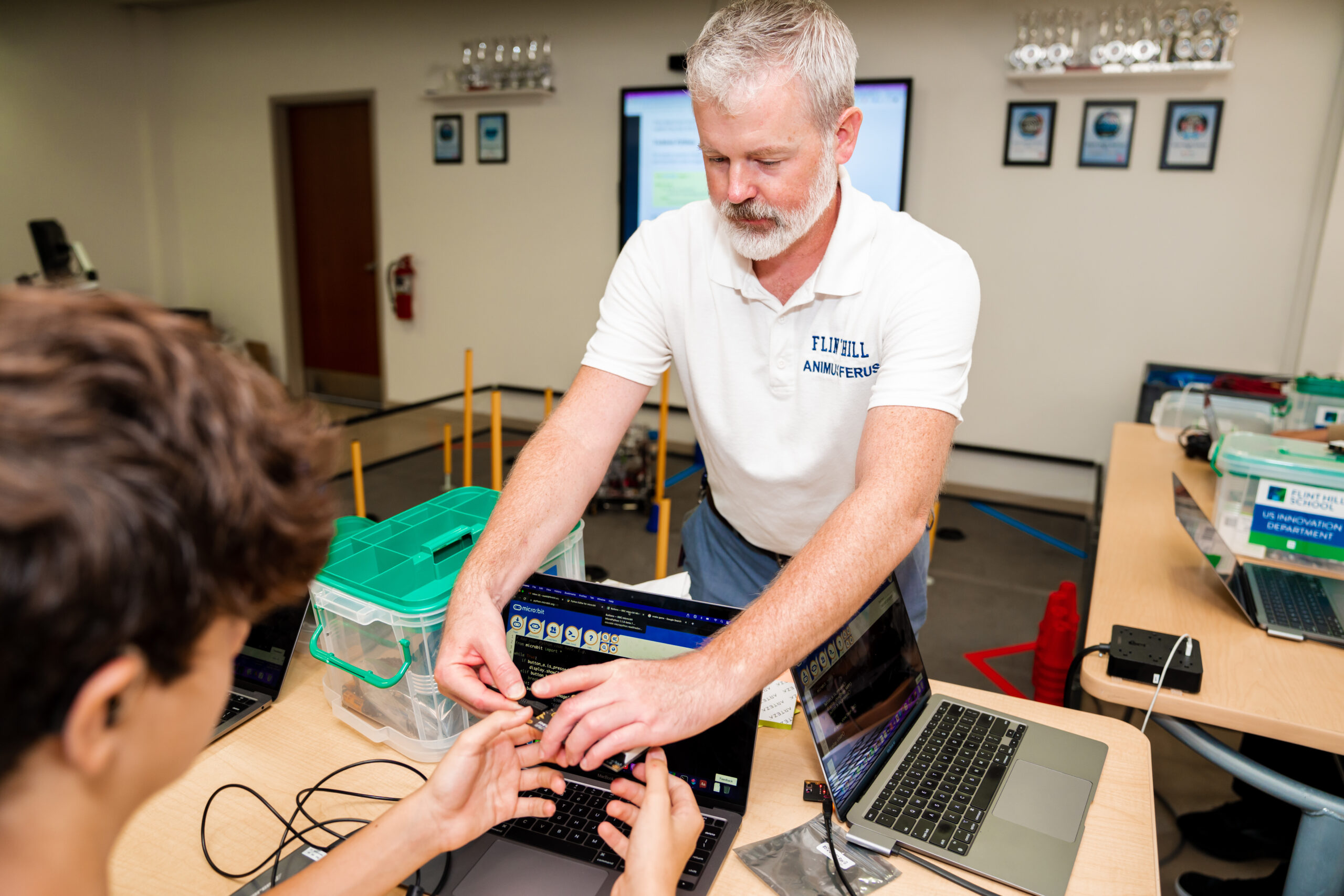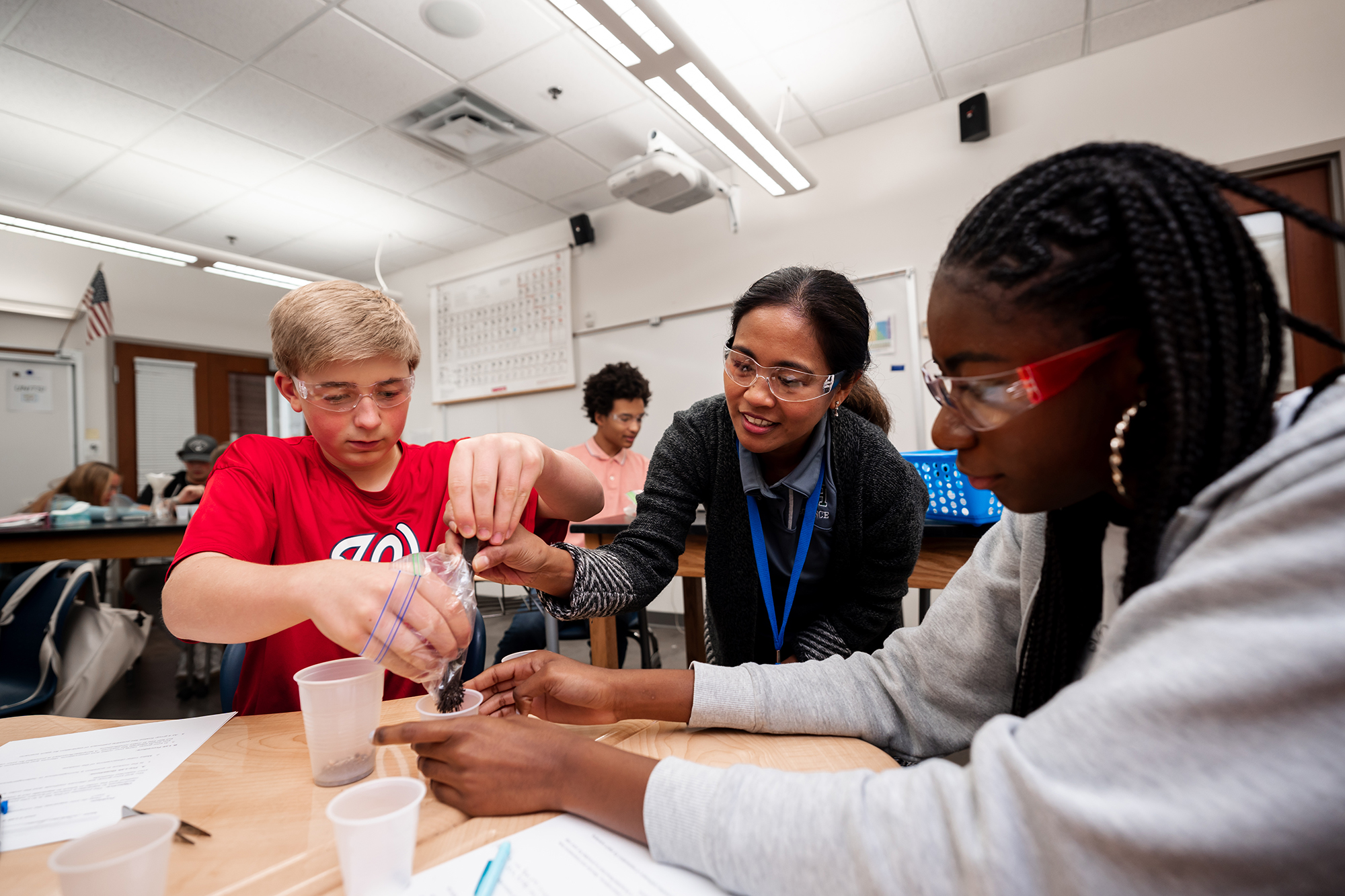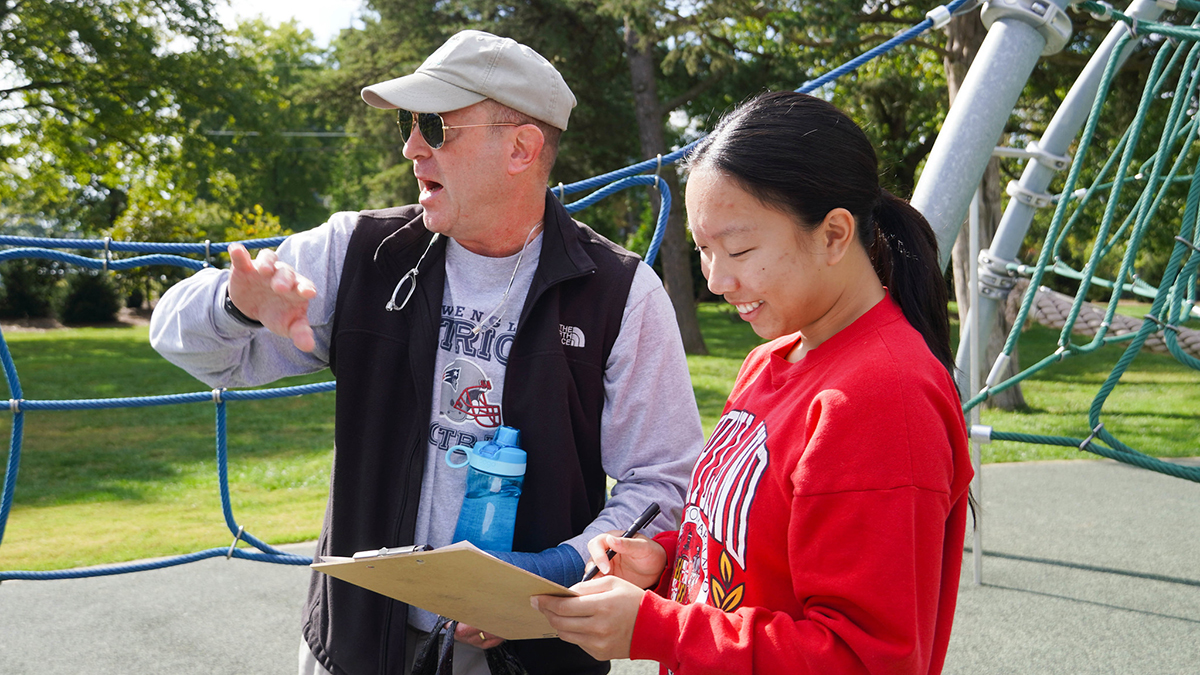LEARN MORE ABOUT FLINT HILL
HUSKY HIGHLIGHTS
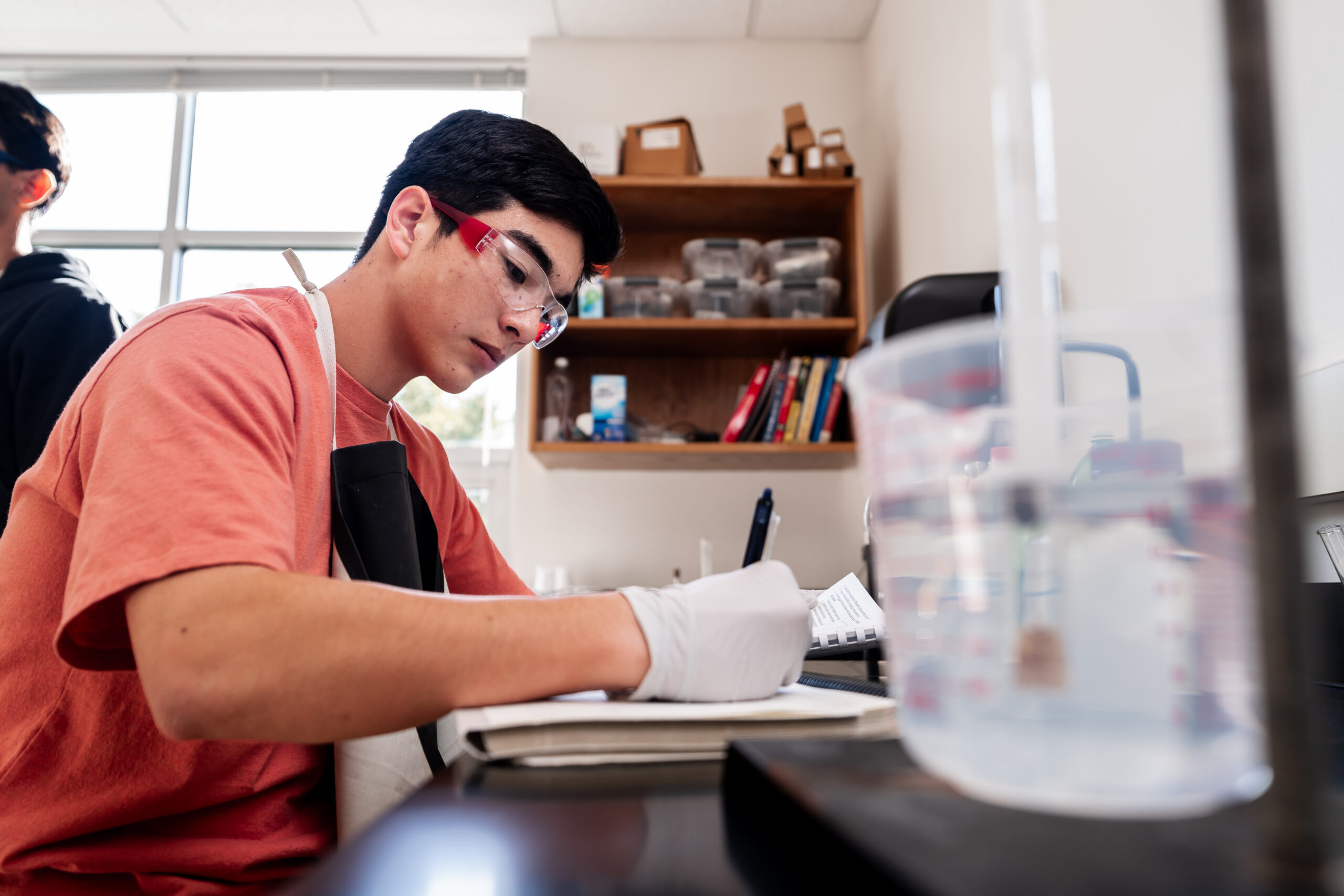
October 8, 2022
By Zack Krug, Ph.D., Grades 7-12 Science Department Chair
Why Physics First? Science Curriculum Explained
Most schools start with Biology or Earth Science and escalate to Physics. But in the 1990s, Flint Hill switched that around. Why did we make the change?
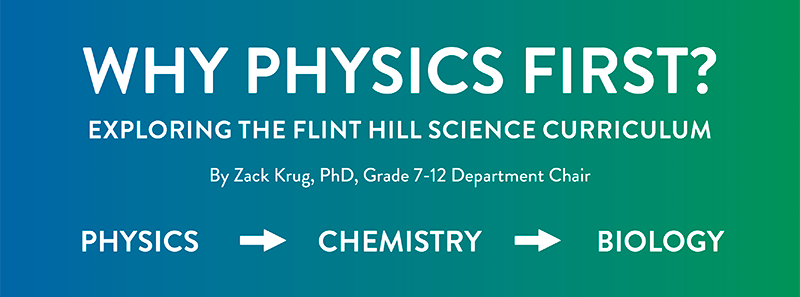
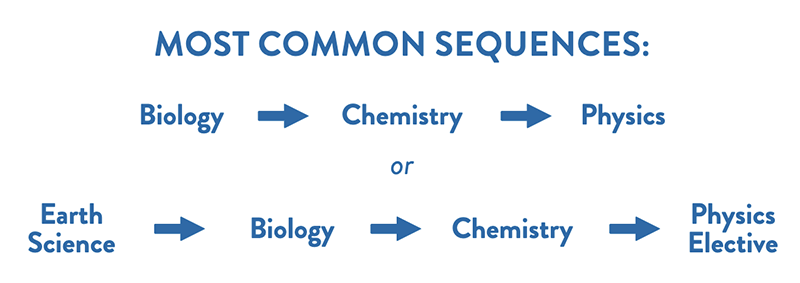
Physics, Chemistry and Biology are NOT independent topics. They are a sequence of interrelated content that can be used to describe the entirety of nature.
Physics allows students to discover information and build skills in data collection, modeling and argumentation — skills they’ll need for Biology and Chemistry.
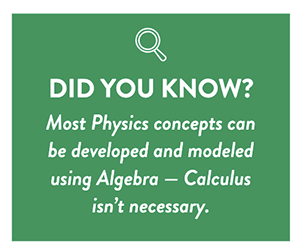
Physics deals with systems that can be observed and manipulated, making it easier to collect data and develop models. These skills are best developed here, because they are vital in Chemistry, where students can no longer directly observe the systems. Things like atomic structures and particle motion must be inferred from data. Placing Physics first aids in understanding Chemistry.
All living things either take advantage of or actively try to overcome the laws of Physics and Chemistry. Without Physics and Chemistry, therefore, you can’t fully understand or appreciate the complexity of the natural world.
If Biology is taught in ninth grade, either the Biology teacher teaches just enough Chemistry to understand the material (not ideal), or these concepts are simply not taught, relegating Biology to a descriptive subject rather than a science.
The most fundamental aspect of the scientific method is creating and testing hypotheses. This requires statistics. Biology provides more chaotic data (as compared to very clean patterns in Physics and Chemistry), meaning statistical tests are required to accept or reject hypotheses. Incorporating statistics turns Biology into a hypothesis-testing science. But these statistical techniques require more advanced math training, meaning Biology is best taught to juniors.
Placing physics first allows for a 3-year progression of content that constantly builds, rather than three independent, unrelated experiences.
If the goal is to create great scientists, which is what Flint Hill aims to do, placing Physics first is the best way.
Download the PDF explanation or view this information on our Instagram.
Zack Krug, Ph.D., is the Grades 7-12 Science Department Chair and a 1995 graduate of Flint Hill.
LEARN MORE ABOUT FLINT HILL
Fill out the form to receive updates from our team.
RECOMMENDED FOR YOU
Most schools start with Biology or Earth Science and escalate to Physics. But in the 1990s, Flint Hill switched that around. Why did we make...
Michael Snyder, an Upper School teacher at Flint Hill, is the architect of Flint Hill’s award-winning robotics program and team, and teaches cybersecurity — another...
Zita Gray is dedicated to science education at Flint Hill School. But she’s quick to point out that school isn’t just about the subject you...
Gary Smilowitz brings almost 30 years of experience in naval aviation and engineering to Flint Hill, where he’s onto his third career: teaching.



